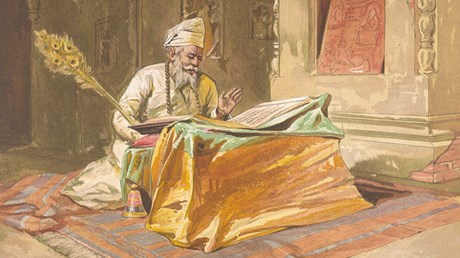Must-reads for those eager to learn the origins, development, and tensions within a faith common to many Punjabis.

Manvir Vohra teaches world religions at seminaries in northern India and trains pastors and leaders in Punjab and other areas of North India. He also led the team that authored the first New Testament dictionary in the Punjabi language.
A History of the Sikhs, Volume 1 (1469-1839), by Khushwant Singh
In A History of Sikhs – Volume I, the firebrand writer, lawyer, diplomat, journalist, and politician Khushwant Singh presents a well-researched work about the origins and early history of the faith. Written in an easy-to-understand language, this book is of immense value for its non-hagiographic and pragmatic approach.
The book’s early chapters address the religious, cultural, and political environment of India and include a discussion of the 10 gurus who founded and developed the faith. Then Singh recounts the main developments of the religion, dedicating chapters to important characters in Sikh history like the warrior Banda Bahadur. Volume I investigates the early organization of the Sikhs into loosely organized armed units, their skirmishes with political powers and invaders of Punjab and North India, and the formation of the first Sikh empire under the leadership of Ranjit Singh.
This particular volume serves as a great introduction for readers who want to learn about the Sikh religion and its development. It recounts the initial period of the origins of the faith, its transformation from a purely devotional religion to one that also bears arms, and its ascendancy into a kingdom under an able leader.
A History of the Sikhs, Vol. 2 (1839-2004), by Khushwant Singh
Singh’s Volume II opens with the death of Ranjit Singh and the beginning of the Anglo-Sikh wars. It goes on to discuss the struggles faced by the community ...
from Christianity Today Magazine
Umn ministry


.gif)

.gif)
.gif)
